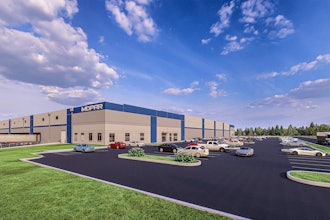Maryland officials approved a $72 million contract Wednesday to buy six medevac helicopters to replace an aging fleet for the state's renowned emergency response program, a need highlighted by a helicopter crash two years ago that killed four people.
The Maryland Board of Public Works — which includes Gov. Martin O'Malley, Treasurer Nancy Kopp and Comptroller Peter Franchot — voted 3-0 to approve the contract with Agusta Aerospace Corp. The contract includes an option to buy up to six additional helicopters between July 2011 and July 2013.
Despite the expense during tough economic times, O'Malley said the investment was crucial to preserve an important public safety initiative, which was established in 1970 as the first civilian agency to transport critically injured trauma patients.
"We will never allow a recession or anything else to take away from us our belief in the dignity of every individual," said O'Malley, a Democrat who is running for re-election. "This investment, while it comes at a tough time, is something that is heartfelt."
O'Malley also recalled attending the funerals of two police officers and an emergency medical services staffer as a painful reminder of the importance of modernizing the fleet.
"Every family member asked of me the same thing when I said, 'Is there anything I can do for you?' And they said: 'Make sure you get these guys the best, most modern and safest helicopters you can moving forward.' And that's what we intend to do," O'Malley said.
Franchot, a frequent critic of the state's procurement process, said he had misgivings about supporting such a large contract that only attracted one bidder.
"That, to me, is a failure of the procurement process, and I'm deeply concerned that three of the world's biggest and most recognizable helicopter manufacturers say that they declined to compete, because they feel as if they were excluded by the narrow bid (specifications)," Franchot said.
Still, Franchot said the program was too important not to support the contract.
The first two AW 139 helicopters are expected in Maryland within 18 months. The other four will arrive within two years.
They contain the latest in avionics and equipment, including terrain awareness warning systems, night vision compatibility, cockpit voice and video recorders, radar altimeters and advanced instrument flight rating capabilities. The new helicopters also have more space in the patient and cargo areas to give medics better access to patients and to carry rescue equipment on board all the time.
Maryland currently uses 11 helicopters bought between 1989 and 1999. One helicopter crashed in September 2008, killing four people in Prince George's County and prompting extra scrutiny of the system, which was the subject of a critical audit by state analysts a month before the accident.
Eight of the 11 helicopters now in use are more than 20 years old.
More than 130,000 patients have been flown to Maryland's network of trauma and specialty-care hospitals since the program was established. The late Dr. R Adams Cowley, who established Maryland's division of emergency medical services, developed the theory of the "golden hour," in which critically injured patients' chances of survival are best if they are treated in a trauma center within 60 minutes of being hurt.
In other business, the board delayed taking action until the next meeting in two weeks on a contract to begin building a single and efficient communications network to link all first responders and state officials across Maryland.


















